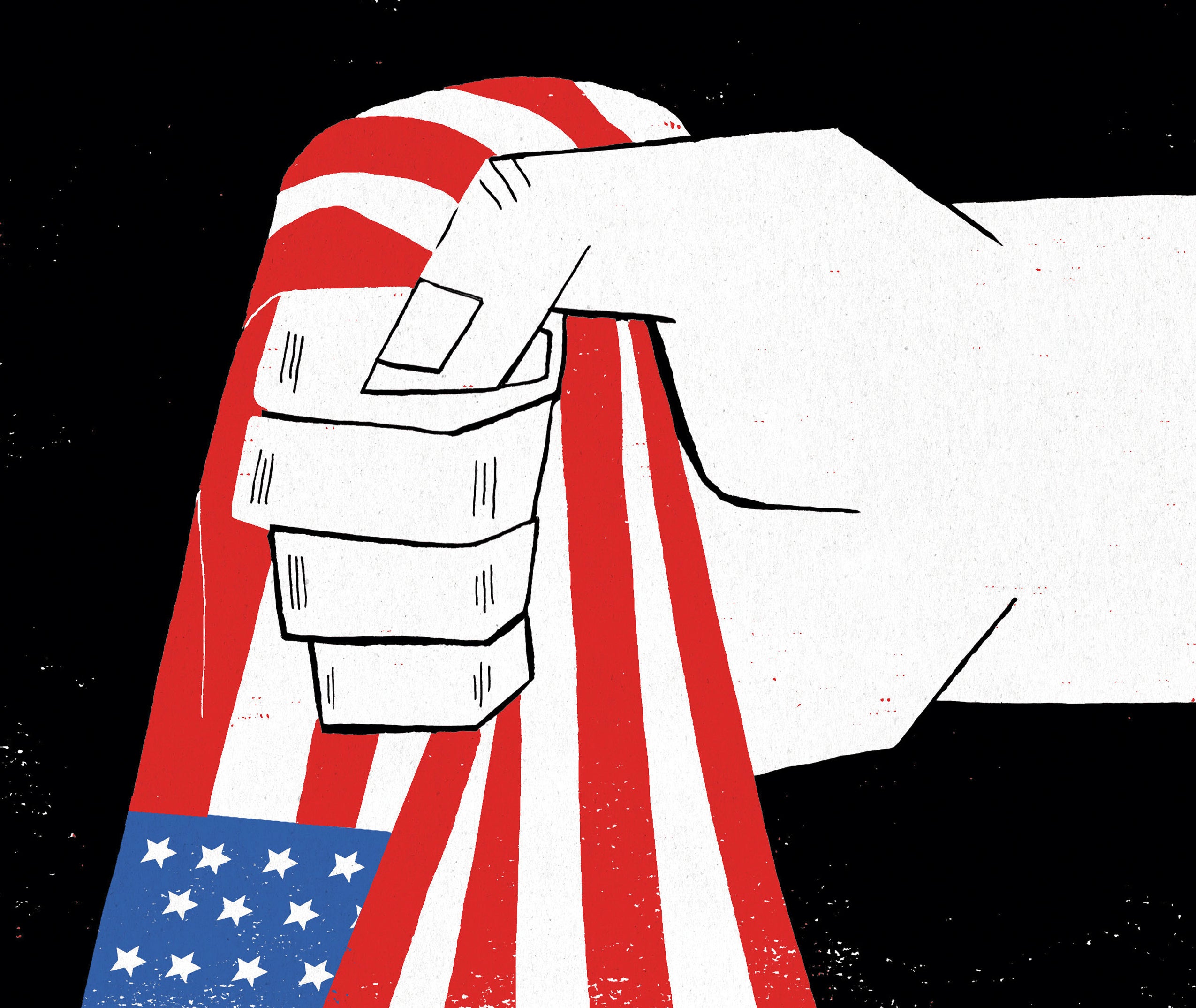“It Can’t Happen Here,” the novel by Sinclair Lewis written in the 1930s as fascism was rising in Europe, imagines an America overtaken by an authoritarian regime. The new book edited by Harvard Law Professor Cass Sunstein ’78, “Can It Happen Here?: Authoritarianism in America” (Dey Street Books), does not predict the same fate. Yet the contributors—several also affiliated with Harvard Law—take seriously the possibility that it could happen here, despite the safeguards built into the American system of government.
As Sunstein notes in the introduction, the book does not focus on the presidency of Donald Trump, although some contributors contend that his words and deeds make it more relevant to consider the possibility of authoritarianism. General topics examined include populism, the constitutional system, how a dictatorship can occur, and lessons from history.
Among the HLS contributors, former Dean Martha Minow looks back at the mass detention of Japanese-Americans during World War II and assesses whether similar action could be repeated. As she cautions, the court precedent that allowed internment has not been overturned.
Professor Jack Goldsmith, who served in the George W. Bush administration, writes on the “Deep State,” the U.S. intelligence and national security establishment. He explores the paradox that the Deep State can be both a danger to democratic norms, as demonstrated by abuses under FBI Director J. Edgar Hoover, and a protector, such as when longtime FBI official Mark Felt leaked information as “Deep Throat” in order to expose corruption in the Nixon administration.
Professor Noah Feldman asks what each word of the title of Lewis’ book means in the contemporary context. He argues that “it,” meaning fascism in Lewis’ conception, is unlikely to happen in the U.S. and other Western democracies, given that bureaucracies are accustomed to operating under legal and cultural norms.
Foreign influence in American democracy is the subject of an essay by Professor of Practice Samantha Power ’99. She recaps Russia’s spread of “fake news” during the most recent U.S. presidential election and warns of the dangers of citizen manipulation outside the election cycle.
Sunstein also contributes an essay, on the republican government and complex system of checks and balances championed by the Federalist Papers, which he says still bolsters America’s liberty. He, too, doubts that authoritarianism can happen here. Other contributors warn of greater danger. As a whole, the essays reflect the maxim that eternal vigilance is the price of liberty.
